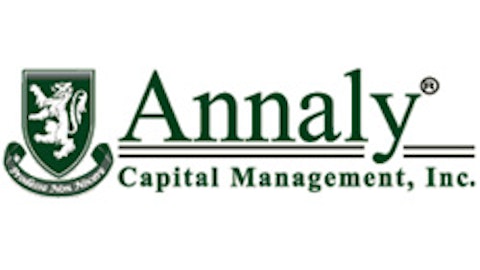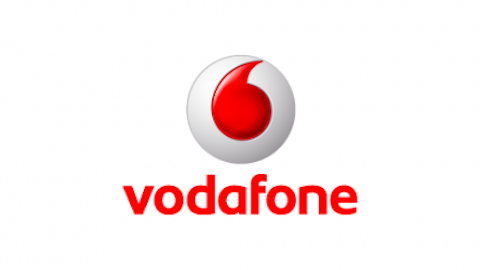In June 2011, I invested my money equally in a selection of 10 high-yield dividend stocks. With a year of success behind me, in July 2012, I added even more money to the portfolio. Those names offer triple the yield of the average S&P 500 stock. You can read all the details here. Now let’s check out the results so far.
| Company | Cost Basis | Shares | Yield | Total Value | Return |
|---|---|---|---|---|---|
| Southern | $39.71 | 25.0818 | 4.4% | $1,141.72 | 14.6% |
| Exelon | $41.36 | 28.818 | 3.6% | $1,000.56 | (16%) |
| National Grid | $48.90 | 20.3693 | 4.9% | $1,274.30 | 27.9% |
| Philip Morris International (NYSE:PM) | $68.49 | 14.5429 | 3.6% | $1,371.54 | 37.7% |
| Ryman Hospitality (NYSE:RHP) | $44.93 | 24.7 | 4.8% | $1,010.23 | (9%) |
| Plum Creek Timber | $38.42 | 26 | 3.3% | $1,359.54 | 36.1% |
| Brookfield Infrastructure Partners | $26.12 | 38.2825 | 4.4% | $1,460.86 | 46.1% |
| Vodafone (NASDAQ:VOD) | $26.75 | 56.7566 | 5.3% | $1,666.37 | 9.8% |
| Seaspan | $15.24 | 95 | 5.9% | $2,122.30 | 46.6% |
| AT&T | $35.20 | 28.4 | 4.9% | $1,043.42 | 4.4% |
| Retail Opportunity Investments | $12.20 | 81.95 | 3.9% | $1,244.00 | 24.4% |
| Annaly (NYSE:NLY) Preferred D | $25.98 | 38.9 | 7.2% | $1,016.85 | 2.5% |
| Cash | $330.37 | ||||
| Dividends Receivable | $62.79 | ||||
| Original Investment | $12,983.97 | ||||
| Total Portfolio | $16,104.86 | 24% | |||
| Investment in SPY (Including Dividends) | 26.9% | ||||
| Relative Performance (Percentage Points) | (2.9) |
Source: Capital IQ, a division of Standard & Poor’s.
There has been quite the switch in portfolio performance in the past couple of weeks, and it looks like investors were switching out of dividend stocks. Since then our portfolio is down 1.4 percentage points, but the S&P gained 2 percentage points. That swing leaves us 2.9 points down on the index. That’s a marked shift in a short period. The blended yield remains at 4.7%, and we have more than $300 in cash in the portfolio, with $60 more on the way in just a few weeks.
In the next week or two (as Fool’s rules permit), I’m going to add $1,000 to each of two new stocks. In addition, I’m going to sell a pair of stocks. Here are the details.

I think Gramercy Property Trust Inc (NYSE:GPT)’s upside could be 50% over the next year or so. Before the dividend starts on the common stock, though, the company has to become current on its preferred dividend, so I don’t expect the common dividend for perhaps a year. But sometimes you have to skate to where a dividend will be rather than where it is. The dividend reinstatement should drive the stock much higher.
In addition, I’ll be buying shares of Sprott Resource. This spawn of the Sprott family is a private-equity company led by CEO Kevin Bambrough. It invests in commodities business across the spectrum, including gold, cattle, oil and natural gas, and farmland. It has suffered of late because of its association with gold, which has been hammered in the past couple of months. But gold comprises less than one-fourth of its portfolio. A key value creator at Sprott Resource is bringing companies public, exploiting private-public arbitrage, where public assets are valued more highly than equivalent private assets.
The company aims to pay out 10% of its book value annually. Its dividend is paid monthly and currently comes to $0.035 per share. Bambrough instituted the dividend late last year to move shares higher, and he has been an aggressive buyer of shares at below book value, a move that should create value for shareholders. Now trading at less than book value with a five-year track record of 28% annual returns, Sprott Resource looks cheap.
I’m selling my stakes in Southern and AT&T. In Southern we’ve realized a 24% gain (including dividends) since we bought the stock in June 2011. AT&T has provided almost a 9% gain since our purchase in July 2012. The decision to sell Southern is based largely on the fact that the portfolio already has utility exposure that I like better at current prices, namely through Exelon, National Grid, and Brookfield Infrastructure. It’s a similar situation for AT&T — I’d just rather own more Vodafone, which is cheap and has the added catalyst of a potential sale of its stake in Verizon Wireless.
With the cash raised from selling, I’m going to buy more Philip Morris International, Vodafone, and Ryman Hospitality, with $1,000 in the first and $500 in each of the other two. Philip Morris has a remarkably resilient business, despite all the euro malaise, and it’s not too expensive at less than 17 times 2013 earnings. The company’s ongoing and aggressive share repurchases also keep the stock flying high. The rationale for buying more Vodafone I’ve discussed at length before.
The telecom giant will soon receive a $3.2 billion dividend from Verizon Wireless, which it will retain. Vodafone also announced its future dividend policy, aiming to maintain this year’s payout. So no growth for the near future — not unexpected, given the problems in Europe. Fellow Fool G.A. Chester has more on Vodafone, including what its free cash flow should look like in the coming year. Check out the article.
I’ve made the case for Ryman recently, but here it is briefly. The company owns four of the top 10 convention hotels in the U.S., pays a healthy dividend, and is buying back shares at least until it’s valued in line with peers. I like the fact that the company is buying shares rather than simply building or buying other hotels. The company is returning all funds from operations to shareholders this year.
Annaly just closed on its purchase of CreXus and renamed the unit Annaly Commercial Real Estate Group. The move should help bolster earnings, but we’re less concerned about earnings growth because we own the preferred shares. We need the company to survive, not necessarily thrive. Shares of the common stock have been whacked in the past couple of weeks, while the series D preferred stock has continued to go up and now sits almost 5% above par. The series C trades even higher.
Dividends and earnings announcements
Here is the recent news on earnings and dividends.
Dividend news:
- Southern went ex-dividend on May 2 and pays out $0.5075 per share on June 6.
- Exelon went ex-dividend on May 13 and pays out $0.31 per share on June 10.
- Seaspan went ex-dividend on May 16 and pays out $0.3125 per share on May 30.
- Plum Creek went ex-dividend on May 15 and pays out $0.44 per share on May 31.
- Annaly Series D goes ex-dividend on May 30 and pays out almost $0.48 per share on June 30.
- Brookfield goes ex-dividend on May 29 and pays outs $0.43 per share on June 30.
All that, of course, means more money coming into our pockets.
It’s fun to sit back and get paid, and with the market volatility, we might have a good chance to reinvest those dividends at good prices. Europe continues to be an absolute mess, and continued bad news will probably have stocks plunging again. If they do, I’ll be inclined to pick more shares up.
Foolish bottom line
I’ve been a fan of big dividends for a while, and I think this portfolio will outperform the market over time through the power of dividends. As I promised in the original article, I’ll continue to track and report on the portfolio’s progress, including news on these companies.
The article The World’s Best Dividend Portfolio originally appeared on Fool.com.
Jim Royal, Ph.D., owns shares of the 12 portfolio stocks mentioned in the table. The Motley Fool recommends Brookfield Infrastructure, Exelon, National Grid, Retail Opportunity Investments, Seaspan, Southern, and Vodafone and owns shares of Gramercy Property, Brookfield Infrastructure, Philip Morris, Retail Opportunity Investments, Ryman Hospitality, and Seaspan.
Copyright © 1995 – 2013 The Motley Fool, LLC. All rights reserved. The Motley Fool has a disclosure policy.



